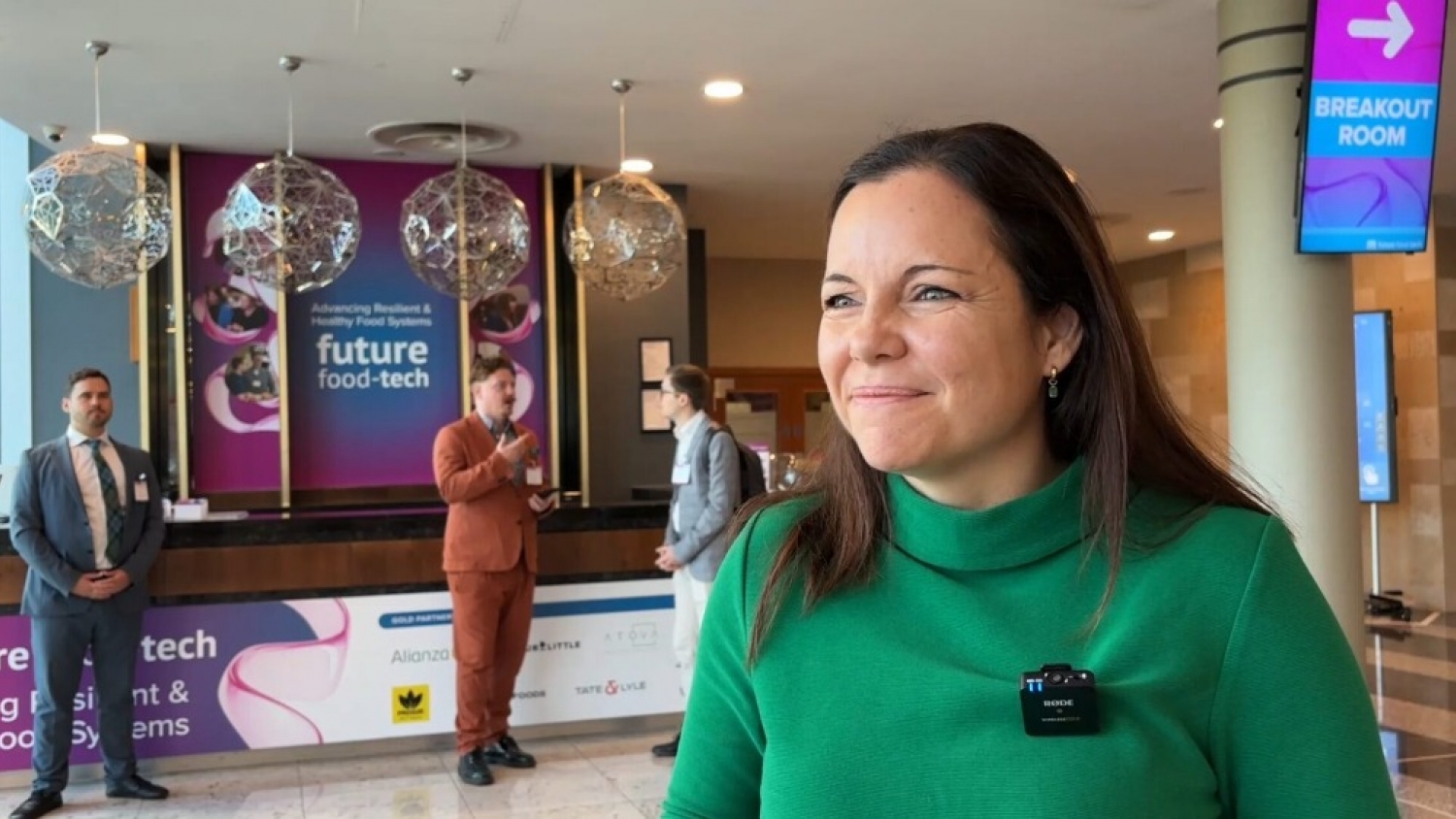
Tate & Lyle is advancing its open innovation strategy to accelerate the development of new ingredients and technologies, a shift driven by growing customer demand for faster, more flexible food-tech solutions, according to an interview published by AgFunderNews (AFN). Karen du Plessis, the company’s head of open innovation, explained that the London-based ingredients leader is expanding global collaboration platforms and refining its model to build partnerships with startups that can move rapidly toward commercialization.
In remarks to AFN, du Plessis said Tate & Lyle is operating under a hybrid innovation model, combining internal expertise with focused external scouting. “There’s so much talent outside of Tate & Lyle,” she told AFN, noting that the company’s goal is to engage that ecosystem to “speed up innovation and get really innovative new solutions to customers a lot more quickly.” The strategy reflects a broader industry trend in which food and ingredient multinationals lean on emerging technologies, university research, and early-stage companies to complement in-house R&D.
The firm’s discovery pipeline is fueled through multiple entry points: events such as Future Food-Tech, inbound approaches from startups, and trend monitoring by business units across categories like sweeteners, sugar reduction, and fibers. Teams within Tate & Lyle remain closely linked to markets and trade shows, giving them visibility into upcoming trends and potential partners. “It could be a combination of factors,” du Plessis said, describing how collaborations typically originate.
A cornerstone of the updated strategy is the company’s participation in MassChallenge, a global accelerator with strong activity in Switzerland and the UK. Tate & Lyle joined as a corporate partner this year, aiming to support high-potential startups while gaining early access to emerging technologies. “MassChallenge is independent. They don’t take equity, and they have developed a program to really support startups,” du Plessis told AFN. She emphasized that mentors, corporate partners, and ecosystem resources help young companies navigate regulatory, technical, and commercial hurdles.
According to du Plessis, Tate & Lyle is especially focusing on startups close to commercialization, though the company remains open to “breakthrough innovations” that may be further from market. The company often contributes regulatory guidance, expertise in ingredient naming for labeling purposes, and insights into manufacturing scalability. This dual approach allows it to build relationships early while advancing near-term opportunities.
In recent years, Tate & Lyle has entered notable partnerships illustrating how its open innovation strategy operates in practice. One example is its collaboration with Manus Bio, which produces bio-converted Reb M, a high-purity stevia-derived sweetener. Tate & Lyle already manufactures Reb M, but customers increasingly want an Americas-sourced option, prompting the partnership. The agreement includes supplying ingredients to the market and exploring potential joint development opportunities. The relationship, du Plessis said, has “potential to grow.”
Another partnership is with BioHarvest Sciences, whose plant cell culture platform enables biological synthesis of ingredients. Tate & Lyle sees the technology as a promising route toward more sustainable production of rare sugars. This collaboration takes a joint development approach, reflecting the company’s broader interest in processes that improve sustainability and efficiency across the value chain.
A key component of Tate & Lyle’s shift in strategy is its decision to move away from equity-based investments. According to AFN, the company wound down Tate & Lyle Ventures, previously operated through Circadia Ventures, after finding that equity stakes often created strategic misalignment. “It’s really challenging sometimes to take an equity stake,” du Plessis said, noting that the company lacks a dedicated portfolio management team and that startup interests may diverge from those of a corporate partner. Instead, Tate & Lyle is focusing on commercial-driven collaborations and accelerator partnerships as more flexible mechanisms for innovation.
This shift also reflects a broader understanding of how corporates can interact with startups. Du Plessis acknowledged perceptions that large companies are slow or bureaucratic, but argued that transparency helps overcome those concerns. Her role includes helping startups understand corporate processes—especially the proprietary work and validation required before market launch—while ensuring Tate & Lyle’s internal teams appreciate the resource constraints young companies face. “It’s that better understanding of each other’s position that helps a collaboration to be way more successful,” she said.
One lesson learned from past collaborations, she noted, is the importance of clearly defined roles, responsibilities, and milestones. Structured work plans, realistic resource allocation, and mutual expectations are essential to avoid friction and ensure progress. These components help both sides navigate development sprints or milestone-based arrangements that reduce risk and avoid overly exclusive commitments.
Tate & Lyle also sees open innovation as a bridge into new business territories. While much activity focuses on core areas such as sweetening and reformulation challenges, the company views market scouting as a way to identify technologies that could enhance or expand its portfolio. “We want to go into new territories,” du Plessis told AFN, suggesting the company remains open to ingredients and processes that address evolving customer needs, including complex reformulations across global markets.
As demand grows for reliable, scalable, and sustainable ingredient solutions, the company’s open innovation platform appears set to become an increasingly central part of its growth strategy. For Tate & Lyle, the ability to integrate external talent, emerging technologies, and flexible partnership structures is becoming as critical as the ingredients it produces, AFN reports.
